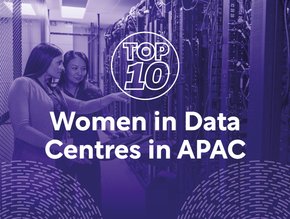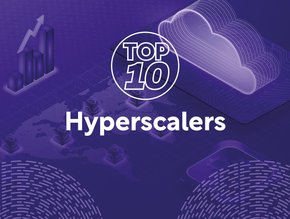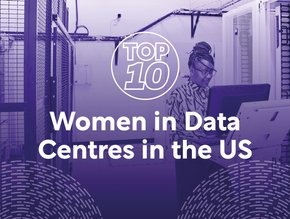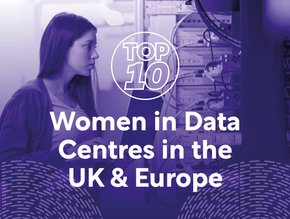
With data centres continuing to develop and expand across the world, customers are relying on a data centre company’s ability to deliver on their IT infrastructure.
Leading data centre accreditations focus on different aspects of a data centre's functionality, but ultimately all aim to ensure reliability, security and efficiency. They help to ensure that data centre services meet quality standards and security measures, with customers confident that their data centre infrastructure is fully supported.
Data Centre Magazine considers some of the most sought-after accreditations for data centres, providing reassurance to customers as they seek to grow their digital transformation strategies.
10. BREEAM
BREEAM’s new construction standard is a globally recognised green building certification by BRE Group for new data centre developments. Although it is commonly applied to UK projects, BREEAM is a globally recognised standard that allows assessment and benchmarking of new and existing property assets across a multitude of building types.
The scheme was launched in response to a growing need to assess the sustainability of data centres due to concerns around rising energy consumption. Data centre companies like CyrusOne and Iron Mountain have announced designs under this accreditation, to ensure that their data centres are both efficient and resilient.
9. ISO 9001
ISO 9001 is one of the world's best known and most popular quality management standards and can be implemented quickly with minimal investment. The accreditation has been adopted by more than one million organisations across the world and is used by businesses to continually monitor, manage and improve the quality of products and services.
To get ISO 9001 certified, a company needs to set up an ISO 9001 compliant quality management system, verify its functionality and compliance through an internal audit and undergo a certification audit by an external registrar.
8. PCI DSS
The PCI DSS accreditation consists of a set of requirements designed to ensure that companies accept, process, store or transmit credit card information securely. It is designed to offer reassurance to customers that the businesses they are working with are committed to providing a safe and secure environment.
It is a worldwide standard that was set up to help businesses process card payments securely and reduce card fraud with tight controls controlling the storage, transmission and processing of cardholder data.
Companies that have this accreditation include Datum Datacentres and VIRTUS Data Centers.
7. iRAP
An iRAP assessment, or Information Security Registered Assessors Programme assessment, is a process that evaluates the security posture of organisations that handle sensitive data. This particularly includes businesses that provide cloud services to Australian government agencies or government customers in particular.
The iRAP accreditation also helps to ensure assessments are performed to the same consistently high level of quality worldwide. Organisations that are accredited can become part of a market of practitioners and suppliers that are able to bid competitively to provide iRAP-specification services.
6. ANSI/TIA-942
ANSI/TIA-942 specifies requirements for the telecommunications infrastructure within data centres and computer rooms. It is designed to cover all aspects, including infrastructure, site location, architectural, electrical, mechanical, safety and security.
This accreditation is designed to outline best practices for data centre design and construction. It covers aspects like physical security, environmental controls and power distribution. The Telecommunications Industry Association states that this accreditation offers a more extensive scope with international specifications needed to design and build a data centre, in addition to evolving to support new technologies.
5. ISO 27001
The ISO 27001 accreditation is a broader information security management standard that can be applied to data centres. It ensures that a data centre has a documented information security management system (ISMS) in place to protect sensitive data.
Used by data centre companies like Digital Realty, ISO 27001 helps protect sensitive data from digital threats like cyberattacks and data breaches. It ensures that organisations implement a robust and systematic approach to information security management, including IT governance, risk assessment, incident management and business continuity planning.
4. SOC 2
SOC 2 is one of the most common compliance standards for organisations with a data centre environment. Data centres facilities that operate with SOC 2 adhere to the standards set forth by the Service Organisation Control (SOC) 2 framework. It demonstrates that a data centre has established and maintained effective controls related to security, availability, processing integrity, confidentiality and customer data privacy.
The SOC 2 compliance framework assesses the security controls of a service organisation, including data centres. The three trust service principles covered by SOC 2 are security, availability and confidentiality.
3. ISO 14001
ISO 14001 is a widely implemented framework that helps organisations establish a proactive and systematic approach toward minimising environmental impacts directly or indirectly on their operations. It provides guidelines on how to improve environmental performance within a data centre organisation.
The framework allows data centre companies to show their commitment to sustainable practices and a dedication to reducing their carbon footprint. By implementing this standard, data centre organisations can identify areas for improvement, measure environmental impact and implement strategies to achieve environmental objectives.
2. LEED Certification
A LEED (Leadership in Energy and Environmental Design) certification is a green building rating system that encourages sustainable design and construction practices. Data centres can achieve LEED certification by implementing measures to improve energy efficiency, water use, and waste reduction.
It is the world's most widely used green building rating system that provides a framework for healthy, highly efficient and cost-saving green buildings, which offer environmental, social and governance benefits.
Tech giant Meta is one example of a company having gained a LEED certification, stating in its 2023 Sustainability Report that its data centres are powered by 100% renewable energy, having at least earned a LEED Gold certification.
1. Uptime Institute Tier Standard
Uptime Institute’s Tier Standards are the globally recognised standard for data centre availability and overall performance. It allows for various performance levels that consider both the built environment, as well as the approach and performance of the operations team.
The accreditation offers a tiered rating system, from Tier I to Tier IV, that classifies data centres based on their level of redundancy and uptime. Tier IV is the most stringent level and requires fault tolerance for all critical infrastructure components within a data centre.
With more than 3,400 awards issued in more than 114 countries around the globe, the Uptime Institute’s Tier Certification is often hailed as the industry standard for data centre design, construction and ongoing operations.
******
Make sure you check out the latest edition of Data Centre Magazine and also sign up to our global conference series - Tech & AI LIVE 2024
******
Data Centre Magazine is a BizClik brand






